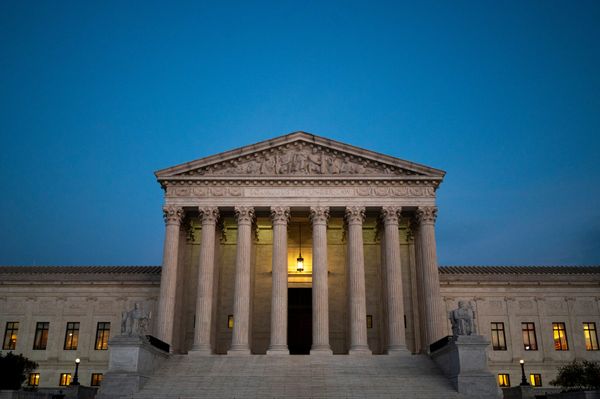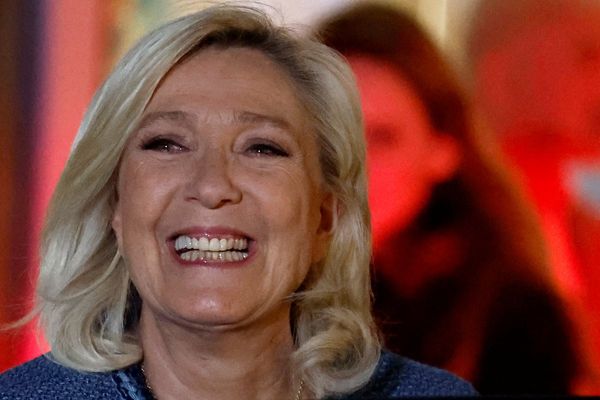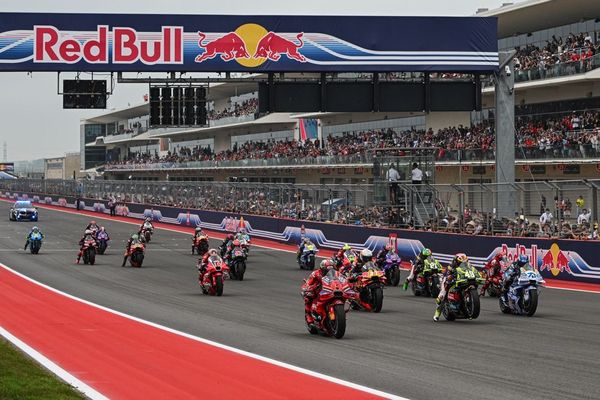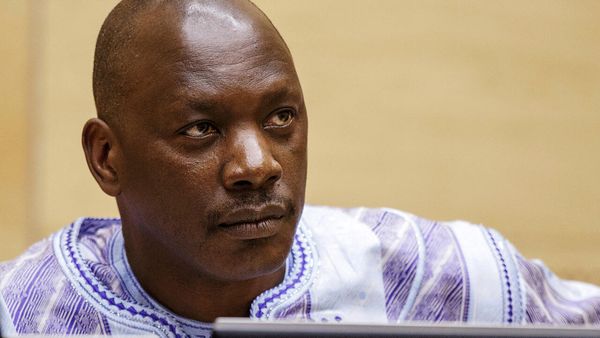
Kyiv (AFP) - A bloodied but defiant Ukraine appealed Wednesday ahead of a major NATO summit for more Western weapons to fight what the United States formally labelled Russian "war crimes."
Almost a month into Russia's invasion, ordered by President Vladimir Putin as a way to force Ukraine from its pro-Western path, battles raged across the east European country, with the besieged port of Mariupol facing fresh horrors.
As US President Joe Biden arrived in Brussels for NATO, G7 and European Union summits, Ukrainian President Volodymyr Zelensky said almost 100,000 people in the southern city remained trapped.
Under relentless bombardments, they were without water, food and power, he said.
The mayor of Kyiv, former world heavyweight boxing champion Vitali Klitschko, said Ukrainian forces were pushing Russian troops back in several areas around the capital.
"We are ready to fight for each building, each street, every part of our city," Klitschko told reporters."We would rather die than kneel in front of the Russians or surrender to the invaders."
A senior NATO official told reporters that as many as 15,000 Russian soldiers may have already been killed.
But Andriy Yermak, a top advisor to Zelensky, said Ukraine needed more help.
Despite showing "superhuman courage," Ukraine "cannot win a war without offensive weapons, without medium-range missiles that can be a means of deterrence," Yermak said.
Economic, diplomatic battles
Outside of Ukraine, the worst diplomatic confrontation between the West and Moscow since the Cold War deepened.
Thursday's back-to-back summits in Brussels will see Biden trying to maintain Western unity that has so far brought unprecedented sanctions against Russia in an effort to cripple its currency, exports and ability to import high-tech components.
The US president will announce new measures on Thursday, according to his national security advisor, Jake Sullivan, targeting "political figures" and members of the wealthy elite around Putin known as "oligarchs."
US Secretary of State Antony Blinken upped the ante by announcing that after a formal review of evidence, "the US government assesses that members of Russia's forces have committed war crimes in Ukraine."
Russia meanwhile, said it was expelling US diplomats in retaliation for Washington's move earlier this month to remove 12 of Moscow's US-based representatives to the United Nations.
In an effort to blunt the damage done by sanctions to the national currency, Putin said Wednesday that Russia will only accept payments in rubles for gas deliveries to "unfriendly countries", which include all EU members.
The maneuver sharpened growing debate in Europe -- which is heavily dependent on Russian energy imports -- about possible bans on Russian oil and gas.
Moscow has warned an embargo would prompt "collapse" of the global energy market, but Zelensky's advisor Yermak pressured Western allies to take the plunge.
"This is now a key economic battle, and the West must collectively win it," he said.
Russia still has a vital friend in China, which pushed back against suggestions that Moscow should be expelled from the G20 group of countries.
Jens Stoltenberg, the secretary general of NATO, accused China of "spreading blatant lies and misinformation" on Russia's behalf.
NATO reinforces
In the latest sign that the war has reinvigorated the NATO alliance, Stoltenberg announced more reinforcements to guard against Russia expanding its campaign.
The leaders at Thursday's summit will agree to "major increases of forces" including four new battle groups in Bulgaria, Hungary, Romania and Slovakia.
The allies will also offer "additional support" to Kyiv against nuclear and chemical threats, he said.
But NATO members, while maintaining a steady supply of anti-tank and short-range anti-aircraft missiles, have refused Zelensky's demands for a no-fly zone over Ukraine or shipment of warplanes to the Ukrainian air force, fearing all-out war with nuclear-armed Russia.
Zelensky kept up the pressure in speeches to French and Japanese lawmakers.
He told the French National Assembly that images of devastated cities such as Mariupol "recall the ruins of Verdun as in the photos of World War I."
"The Russian army makes no distinction between targets.They destroy residential areas, hospitals, schools, universities," he said."They do not take into account the concepts of war crimes."
Zelensky was also to address the NATO meeting on Thursday.
Nearly a month into the invasion, peace talks have agreed on daily humanitarian corridors for refugees, and Ukraine says it is willing to countenance some Russian demands subject to a national referendum.
But it has refused to bow to demands to disarm and renounce its pro-Western ambitions.
Ukraine's lead negotiator Mykhaylo Podolyak said the peace talks were encountering "significant difficulties." Moscow accused the United States of undermining the process.
Russian casualties grow
There were growing signs that Russia's once vaunted military has become badly bogged down, relying on bombarding from a distance.
"Putin's offensive is stuck despite all the destruction that it is bringing day after day," German Chancellor Olaf Scholz said in a speech to the Bundestag.
A senior NATO military official said Wednesday that a combination of information from the Ukrainian authorities, Western intelligence and publicly available sources suggested that between 7,000 and 15,000 Russian soldiers could have been killed so far in the war.
Using historical ratios for numbers of wounded and dead, that could raise the total Russian toll of killed, wounded or captured to between 30,000-40,000, the official said.
Western officials say they fear Putin could order an extreme escalation to break the military deadlock, including chemical, biological or even tactical nuclear attacks.
Biden said there is "a real threat" of chemical warfare.
'Tip of an iceberg'
After Brussels, Biden will head on to Poland, which has received the bulk of more than 3.6 million Ukrainians fleeing the war.
The World Health Organization warned on Wednesday that the humanitarian disaster in Ukraine is only getting worse.
"The problems we face so far...are really the tip of an iceberg of need," WHO emergencies director Michael Ryan said.
"And there's going to have to be a further, massive scaling up of assistance within Ukraine in the coming weeks, because I have never, myself, seen such complex needs, and so quickly in a crisis that has developed so fast."
"We have reached maybe, for once, an appropriate level of horror at what's happening in Ukraine," he said.
burs-sms/ec







